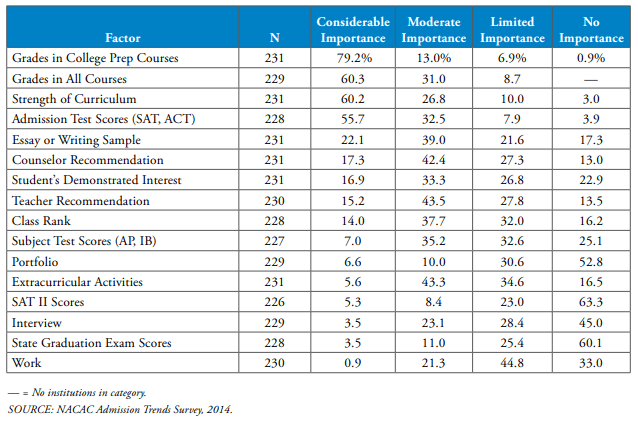I like using the logic of financial analysis to solve everyday household problems. In the past, I have looked at whether I should bail on my old truck, and whether you should for an MBA. In that spirit, I’d like to take a look at a subject that has no bearing on my own life, but I’m interested in nonetheless. What types of activities should you encourage your high school aged kid to take up during their summer breaks?
Flip burgers? Volunteer? Intern?
I don’t have kids. But I’ve often wondered how parents ought to approach their older kids’ plans for summer vacation. Some parents think high school kids should get real-world work experience, like working at a restaurant. Some parents want their kids to study, go to scholastic camps, or in some other way, try to get a leg up on the coming school year. Other parents might want their kids to explore non-scholastic activities like team sports, volunteerism, etc. And there’s probably some other cool options I don’t even know about.
One question that always intrigued me– if you want your kids to get a “leg up”, is it better for them to work a regular job and learn about business, and the importance of showing up on time, and having good manners, or is it better for them to, say, intern for free at a library or lab? In other words, if your kids are going to work summers, what’s the best job to prepare them for a successful career?
How can we turn this into a simpler problem?
I decided to approach the problem by making a simplifying assumption that what we are really trying to do is maximize our child’s lifetime earnings. You can make plenty of arguments against this overall goal, but it makes things analytically easier so I’m just going to roll with it.
This assumption simplifies things in one big way. Lifetime earnings are correlated to a variety of personal factors, including class, ethnicity, grades, IQ, personality, and educational attainment. Let’s throw out the stuff we can’t control, and we’re left with grades, test scores, and higher ed. And, for reasons that will become apparent later, we’ll lump all three factors into “Let’s try to get into the best college we can.”
What summer activity maximizes your kid’s college application strength?
So when I started researching this article, I expected the end result to be that kids should maximize the strength of their college application by covering all the bases, by:
- Getting good grades
- Crushing the SAT / ACT
- Spending a lot of time writing and revising essays
- Doing volunteer stuff
- Having an interesting part-time job
- Playing sports and/or a musical instrument
Let’s check my initial hunches against some real data. The National Association for College Admission Counseling (NACAC) has conducted a survey of college administrators covering which factors matter the most in the admissions process.
Percentage of colleges attributing different levels of importance to factors in admission decisions: first time freshmen

Pretty interesting stuff! And yeah, I was way off. There are only four factors that a majority of colleges consider important, and two of them are grades. The four factors are college prep grades, all grades, curriculum strength, and SAT/ACT scores.
If you widen the net to include factors that at least a third of colleges consider at least moderately important, you can add essays, recommendations, student interest, class rank, subject test scores (AP, IB), and extracurriculars. “Work” is one of the least important factors.
I was really surprised by this! To really maximize your teenager’s attractiveness to a college selection board, they really just need to focus on the academics. Get good grades, have good test scores, and have some extracurricular activities.
What does this mean for our teenager’s summer plans?
Well, I think the first obvious conclusion should be that your teenager probably shouldn’t be working a “regular” teenager job. The money isn’t much, and it doesn’t factor into college admissions. Your kid will have plenty of time to have their soul crushed by work boredom later in life. The hours put into the job simply won’t return very much in the long run.
I think there is an argument to be made for summer academics here. To the extent that reading and studying, and perhaps taking an elective course at a community college, can positively impact future grades and/or test scores, these options would be a good idea.
But I think there’s another angle to take. School is stressful, and maybe having an actual break from the grind of grades during the summer can improve a student’s chances of succeeding in the following school year. If grades and scores are the primary factors anyway, you’re not really “giving up” any ground by skipping the burger flipping or the scholastic camps. To the extent that a nice period of relaxation can help your student’s chances at making it through their Junior year with energy, goofing off all summer might actually be the best option!
A hidden second lesson
There’s another lesson here. My initial hunches were way off. Even in a subject I have some personal experience in. It’s easy to lean on “common sense” and your own experiences, but in investing, including investing in your children’s future, it pays to check your own assumptions against the data.
Don’t miss new posts!
Don’t miss any new posts! Sign up below to subscribe. I generally post once per month and I alternate between longer-form articles and short digests of interesting financial content from other sites I’ve found. Thanks for reading!
Discover more from Luther Wealth
Subscribe to get the latest posts sent to your email.

One Reply to “How Should Your Teenager Spend Their Summer?”